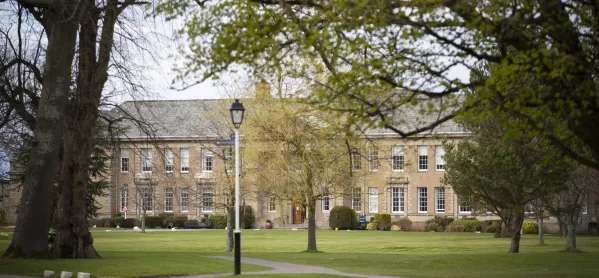‘Predatory culture’ affects all schools, inquiry told

The head of a boys-only independent boarding school has told an inquiry that concerns of a “predatory culture” are an issue for all schools.
Jonathan Anderson, headmaster at Merchiston Castle School, in Edinburgh, said that singling out boys-only schools in relation to the issue is “not fair”.
Giving evidence at the Scottish Child Abuse Inquiry, Mr Anderson said the school had undertaken the “harrowing” process of a full review of historic files and accepts there may have been abuse between 1930, when the school moved to its current site in Colinton, and 2014.
Counsel to the inquiry Andrew Brown QC questioned him on recent media reports of a “predatory culture” that boys’ schools can produce.
Mr Anderson, who took up his role at Merchiston in 2018 after a 20-year career teaching at boarding schools in England, said: “I think it is an issue across all schools.
“I think it’s unfair to single out boys’ schools, as I think it’s a societal issue.
Allegations of child abuse in schools
“I think it’s about how we educate young men, and we take that responsibility very seriously.
“Being able to have a frank discussion with them in a boys-only space is very healthy in that regard.
“To say it’s only an issue for boys’ schools is not fair.”
The inquiry also received a written statement from the school, which said that the review of records found it had failed to protect some children from abuse, in particular in relation to a member of staff who is now dead.
The review found that there may have been physical and emotional abuse at the school over the nine decades examined, including bullying, voyeurism and “lewd practices”.
The records point to this mainly involving staff abuse of pupils, but the files also contain references to verbal and physical bullying among students.
One account from a pupil in the 1950s describes both sexual abuse and bullying from students.
Further documents indicate that, in the past, the school - the only remaining boys-only independent boarding school in Scotland - had not adequately recorded all reports of abuse.
Mr Anderson said: “[The review] has been a salutary experience and a harrowing experience for all involved and we are deeply sorry that it’s taken this to bring it to our attention, but the school of today absolutely recognises that safeguarding is our top priority.”
The inquiry heard that the school has updated its child-protection policies, and that it trains both pupils and staff on this and has increased oversight on the issue.
Mr Anderson added: “We have absolutely learned from this process. Safeguarding is our number one priority and the wellbeing of the young people in our care is of uppermost importance to us.”
The inquiry, being heard before Lady Smith in Edinburgh, continues.
Last Friday, 26 March, the principal of Gordonstoun said the trust and autonomy of housemasters within the boarding schools in the 1960s and 1970s were “astonishing and unacceptable” by today’s standards.
Speaking at the inquiry, Lisa Kerr said that it wasn’t “hard to draw a line” from the level of autonomy that housemasters were given to the peer-on-peer bullying some students experienced.
Andrew Brown QC, senior counsel to the inquiry, asked Ms Kerr about the oversight of housemasters within the boarding school.
He said: “Looking at the historical approach to schooling, there was a greater assumption that these systems would work, in terms of oversight.
“Oversight would be present in terms of a housemaster, who had a great deal of responsibility in running, for example, discipline.”
Ms Kerr said: “I think the level of autonomy that was granted to the housemasters, in that era, is at a level that these days, we’d find astonishing and completely unacceptable.
“And it’s not hard to draw a line between that and, particularly, the peer-on-peer bullying that some students experienced.”
You need a Tes subscription to read this article
Subscribe now to read this article and get other subscriber-only content:
- Unlimited access to all Tes magazine content
- Exclusive subscriber-only stories
- Award-winning email newsletters
Already a subscriber? Log in
You need a subscription to read this article
Subscribe now to read this article and get other subscriber-only content, including:
- Unlimited access to all Tes magazine content
- Exclusive subscriber-only stories
- Award-winning email newsletters
topics in this article



